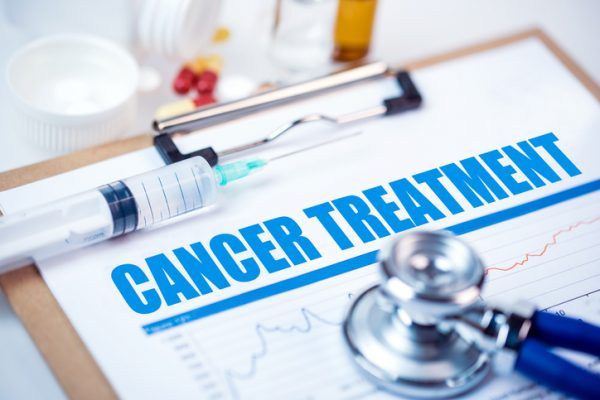
Director of Clinical Services, National Hospital Abuja, Dr. Badejo Olawale, says the National Comprehensive Cancer Network guidelines for the management of cancer patients will help harmonise cancer treatment.
Olawale said this on Tuesday in Abuja at a day conference on the “Uptake of the NCCN Harmonised Guidelines for Sub-Saharan Africa”.
The conference was organised by the hospital in collaboration with the Ministry of Health and the American Cancer Society, the summit focused on Breast Cancer as the pilot.
According to Olawale, with the uptake of the guideline, a lot of confusion and disharmony in the treatment of cancer will be dispelled.
“What we have is a situation where people do things from their own perspective and at the end of the day, there’s lots of confusion.
“The guideline helps you irrespective of the amount of resources you have to practice within a set goal such that if all you have in your centre are surgeons and no radiologist, your surgical practice will fall in line.
“Even if the patient has reasons to go to a place where there are facilities, you would not have done harm to that patient, they will just take it off from there.
“So, it’s beneficial to the practitioner in terms of guides, beneficial to the patient in terms of safety and getting the best possible care in the care spectrum across the different disease types,” the director of clinical services said.
Olawale also said that the guideline which was available for all cancers also help patients seeking information to take instructions and know what questions to ask in the course of the management of that disease.
He also said that it helps families to be able to prepare for the next best thing in the management of the disease and at the end of it all brings out the best outcome irrespective of the level of resources available in that region.
Head, Radiotherapy and Oncology Department, Dr. Uchechukwu Shagaya, said that the summit was organised to commemorate World Cancer Day which is marked on February 4 every year.
“The theme is Closing the Care Gap”. However, over the years most people do awareness and we the oncologists, surgeons, and doctors who manage them should do the preaching about the care gap among caregivers.
“So, we decided to launch an uptake on the harmonised guideline, we want to ensure that the management of cancer is harmonised and we are using standardised guidelines.
“The guideline talks about the prevention of cancer all the way to palliation. It talks about the workup, the tests that should be done, how it should be diagnosed, and how it should be treated.
“What to expect on the side effects of the treatment and then the outcome of the treatment as well as the follow up of the treatment,” Shagaya said.
On his part, Prof. King-David Yawe, Convener, the University of Abuja Teaching Hospital Multi-Disciplinary Tumor Board, said that with the training, caregivers have been empowered with the knowledge to know where help can be obtained.
“That help is in various ways, help from the point of view of diagnosis, from the point of view of treatment, and the various modalities of treatment.
“What we are aiming at in this programme is to equip all of us who are managing breasts and other cancers in one way or the other to be able to know where we can drum up support anytime we need it.
“So you will find that you don’t have to keep a patient waiting in your place for a long time.
You can very quickly transfer that patient or refer that patient to where that service is immediately available.
“That way you will be able to treat the patients on time and therefore be able to prolong their lives,” Yawe said.
Speaking about the brachytherapy machines for the treatment of cancer inaugurated by the Federal Government in five tertiary hospitals across the country, he said that it was an excellent development.
According to him, the facility will draw in a large proportion of patients who did not have it available at all.
“I think it is a very innovative and futuristic idea by the Federal Government. It’s not yet enough because we want to see that patients do not have to travel long distances to have this facility administered.
“However, I think it’s a step in the right direction. I can tell you, when I became a surgeon, there was only one centre in this country offering any form of radiotherapy but 39 years down the line I see a lot of innovations.
“The private sector is also involved in making available radiotherapy facility,” he said.
Yawe, however, urged the Federal Government to sustain the tempo and provide more such facilities around the country to indeed close the gap.
The News Agency of Nigeria reports that brachytherapy machines were inaugurated on Monday to aid the treatment of cancer through radiotherapy.
(NAN)
Leave a Reply